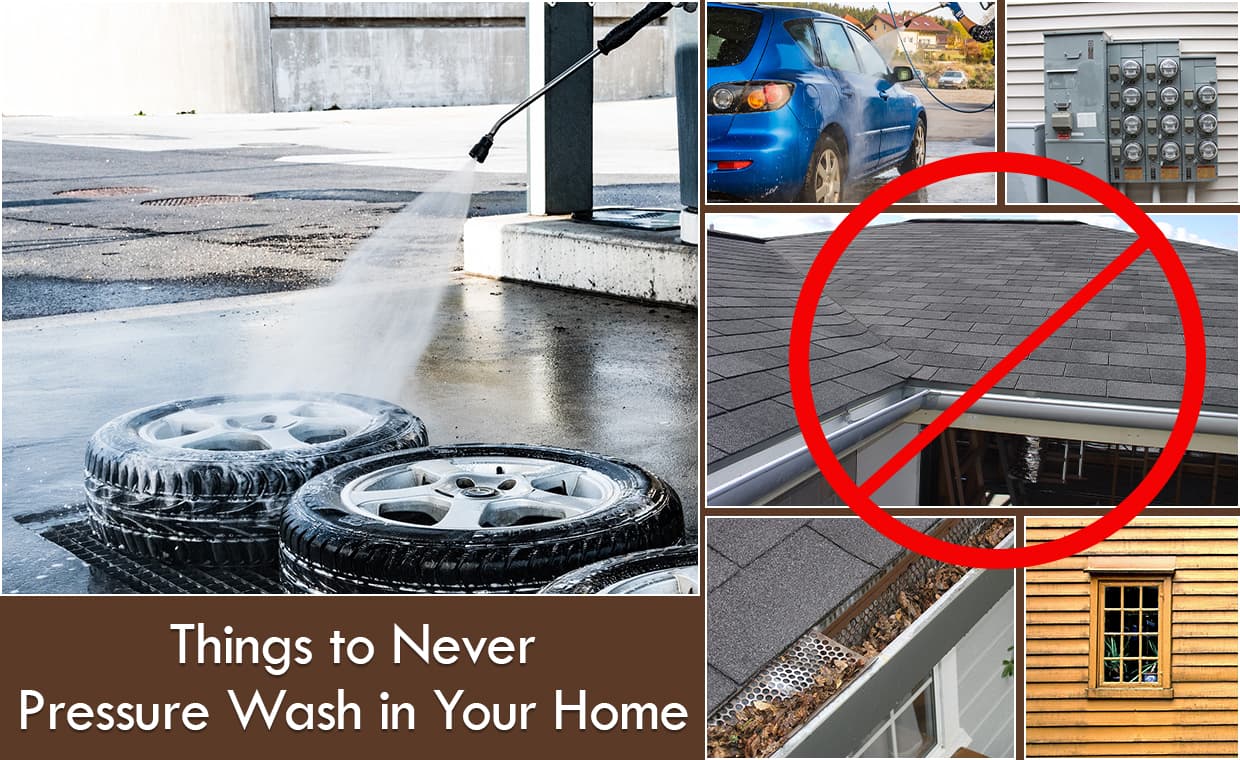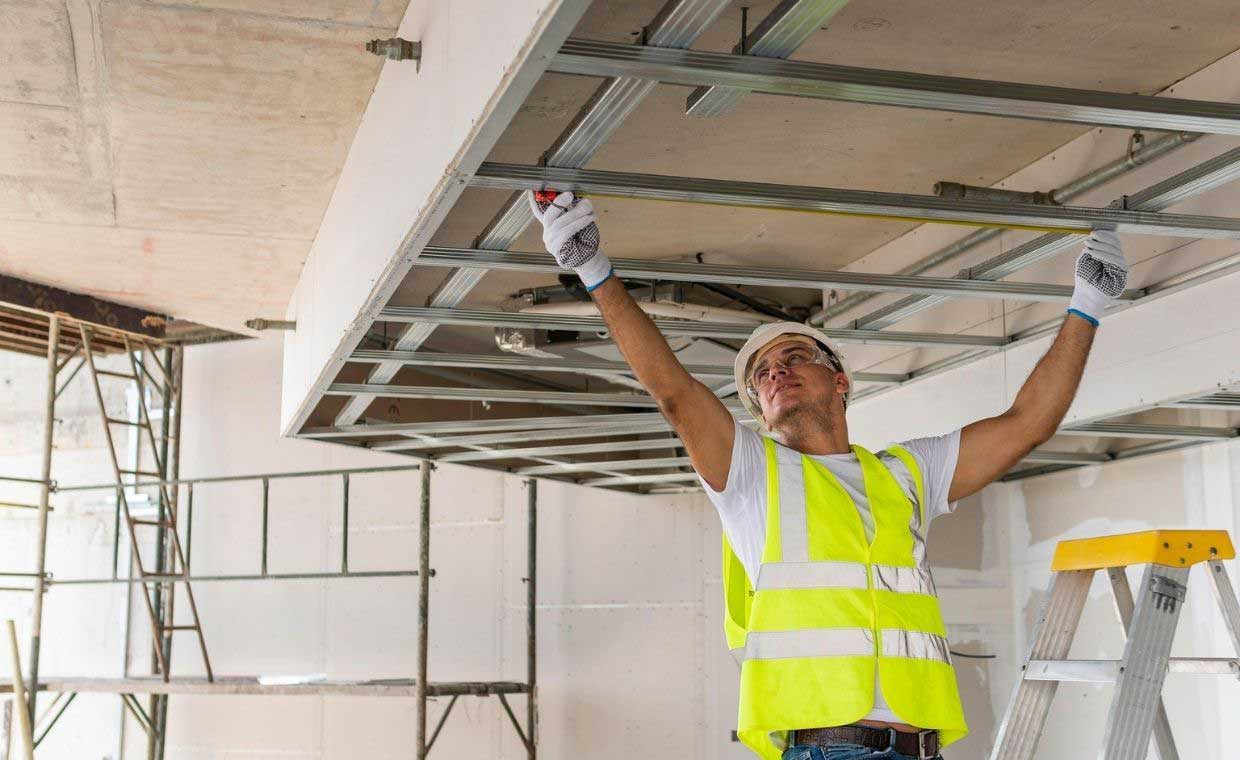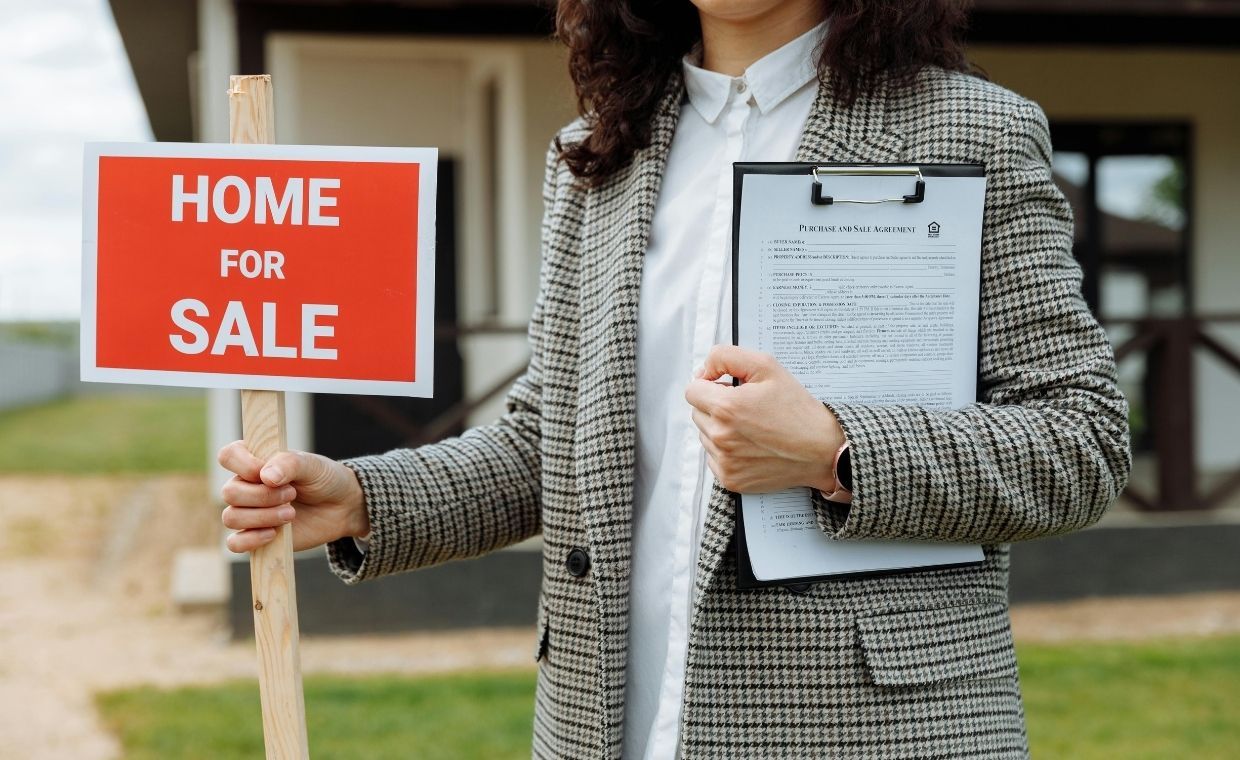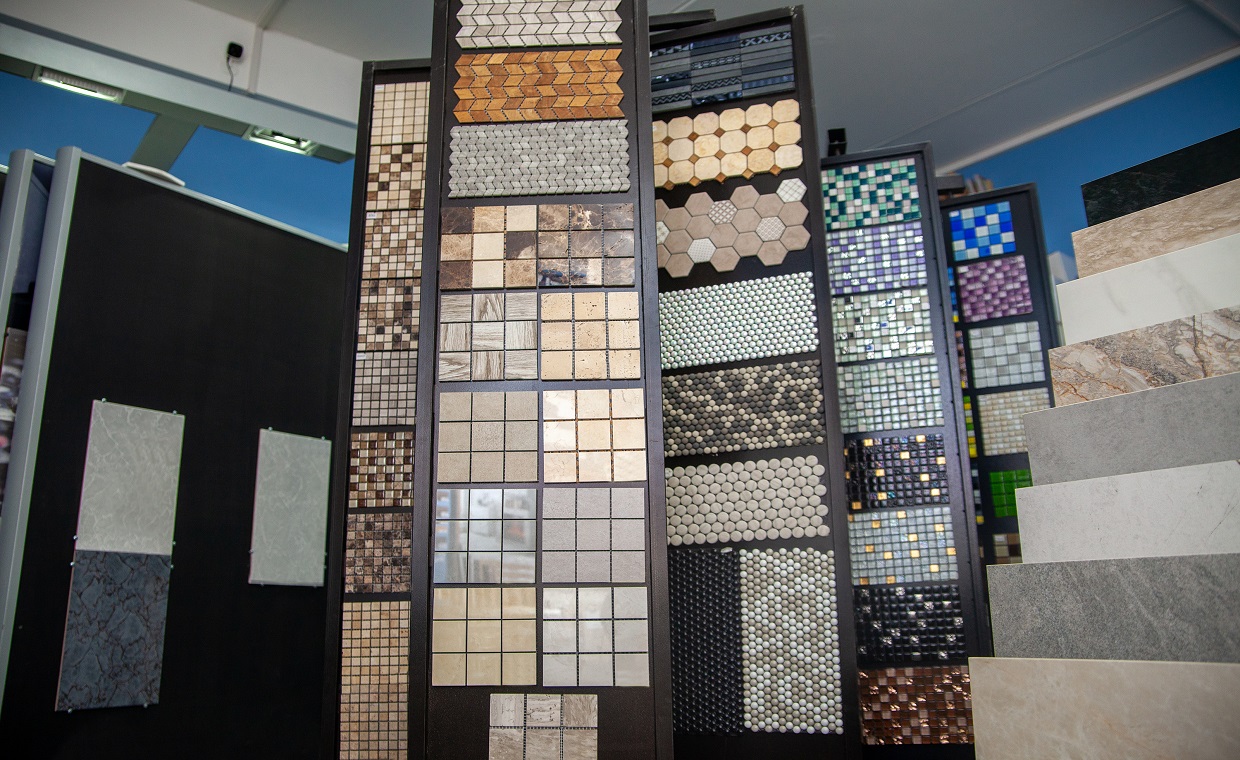
If you’re looking to get your office building, parking lot, home, or even your driveway cleaned, pressure washing inarguably goes a long way. It is one of the best cleaning methods as it is fast and very effective at making objects spick and span.
Pressure washing works by blasting surfaces with a high-pressure jet of water and is a great way to remove ingrained grime from caravans, decking, patios, and garden furniture. But do you know that not all things are safe to be washed with pressure washing? Yes, not all surfaces are created equally. Some surfaces receive more harm than good when being pressure washed as the jet is strong enough to damage them if they are fragile.
Here we are going to discuss few things to avoid when pressure washing.
What are the Things to Avoid When Pressure Washing?
01. Electrical Panels And Meters:

Never pressure wash electric panels, including the ones installed outside your home. Water will be forced to infiltrate cleavages and cracks by the high-powered pressure washer. This can make you spend even more money on repairs and may also cause a dangerous situation in your home.
02. Vehicles:

Do you know that washing your car with a high-powered pressure washer can cause chips and small dents on its surface? Yes, pressure washing your car will cause chips and will also make your vehicle prone to rusting.
If you want to pressure wash your vehicle, ensure that you set it to the low-pressure setting, or drive it to a car wash where their pressure wands are set to low pressure. Never pressure wash your car under the hood as water can penetrate cleavages and cracks, causing severe damage.
03. Wood Siding:

Are there ways of pressure washing wood sidings properly? Yes, there are ways of properly pressure washing your wood siding. However, there is a high possibility of water finding a course under the surface of the exterior.
When water enters your wood siding, it damages electrical wiring, insulation and may also cause the growth of molds. Also, the high-powered pressure washer creates dents on vinyl siding and aluminum. You don’t want this, right? Then you better avoid it.
04. Asphalt Shingles:

Is your roof build with asphalt shingles? If the answer is yes, then never pressure wash it as you could remove the granules that protect your roof from damage. It is also not advisable to pressure clean things in high places as you can easily be thrown off balance by the powerful recoil on the spray wand when the trigger is squeezed.
05. Gutters:

Although it might be tempting, never ever pressure wash the inside of your gutters. It is advisable to use your hands to remove the debris and use a garden hose to rinse the inside clean. Gutters can endure rainstorms, but not a pressure washer’s extreme power.
What are the Pros and Cons of Using Pressure Washers?
Just as everything comes with its downsides and upsides, so does pressure washing. Therefore, before you think of investing in this machine, there are some factors you need to consider. Understand the pros and cons of using pressure washers in your home if you want the job done right.
Pros of Pressure Washing Surfaces
01. Pressure Washers is User-Friendly:
One good thing about pressure washers is that they’re easy to use. Even if you’ve never set eyes on them before, it won’t take you long to figure out how to use them. However, it is imperative to note that the pressure washer is not only incredibly easy to use, but also a potent tool. You have to follow the recommended safety tips to prevent running the risk of getting injured during use.
02. Pressure Washers Make Your Cleaning Job Much Fasterriendly:
Using a pressure washer is inarguably the fastest way of cleaning your home. Imagine washing the exterior of your house without a pressure washer. How long do you think it would take? Probably days, if not weeks. If your exteriors are extremely dirty, it can take you a while to completely clean it up, but using a pressure washer would speed up the process by a lot.
03. Pressure Washers Can Clean Almost Any Exterior Surface:
Another pro of pressure washing is that there are very few things it cannot wash. You can use it to clean almost any outdoor surface, including the driveway or even your home siding, and make it look as though you have just built your house. So, instead of wasting your money looking out for different tools to clean your home’s exterior surfaces, you can use a pressure washer to do it all.
Cons of Using a Pressure Washer on Your Home
01. For Some Surfaces, Pressure Washers Can Be Too Strong:
Pressure washers are very powerful, and some surfaces can’t handle them. For instance, exterior surfaces such as loose wood or vinyl siding can begin to deteriorate and start cracking under high pressure as they can’t take all the weight of the pressure washer.
Also, a pressure washer can damage a house’s paint and make it peel off. If you want to use a pressure washer to clean your house, make sure you research the surfaces you wish to clean to ensure they can withstand the pressure.
02. You Could Get Injured:
Although a pressure washer is hooked up to a garden hose and uses the water flowing through the hose, the force of the water exiting the pressure washer is more powerful than a regular hose. If you’ve never used it before, you can be knocked back by the force and sustain serious injuries.
Like with any other machine, you should read the user manual carefully to be able to handle it safely and avoid injuries.
Using pressure washers is a great way to clean your home, but you should exercise caution if you have never used them before. Try to learn how to properly clean your house, fence, driveway, or car before you turn on your pressure washer.
This is where you’ll find How to Clean Brick Pavers with Pressure Washer, read here to know more –
How to Clean Brick Pavers Using the Pressure Washer?
Image Courtesy: Image 5
Author Bio
Jennifer Kiminza – Jennifer Kiminza is a content writer and content marketing professional at Hub Spot, an inbound marketing and sales platform that helps companies attract visitors, convert leads, and close customers. Previously, Jennifer worked as a marketing manager for a tech software startup. She graduated with honors from Nairobi University with a dual degree in Business Administration and Creative Writing.






























